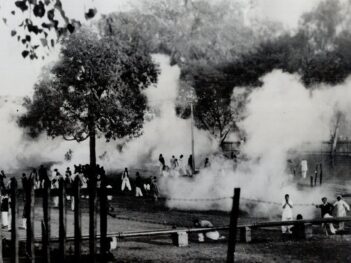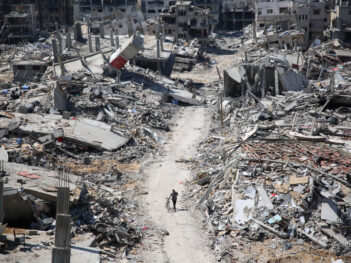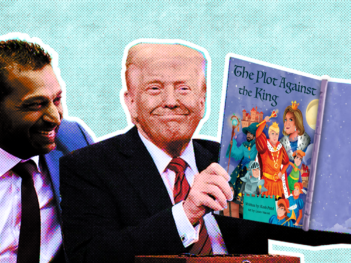
Review

America’s Unraveling on Screen
Filmmakers are increasingly registering, and, in turn, reflecting back at us from the silver screen, fears of a future defined by vigilantism, insurgencies and state violence. Films like “Civil War,” “The Order,” “Eddington” and “One Battle After Another” warn of what might follow the collapse of conventional politics.

The Song of the Autocrat
The opera “Boris Godunov” — first performed in St. Petersburg in 1874 — has, in recent years, become a lightning rod for clashing interpretations of Putin’s regime and, by extension, the question of Russians’ complicity in the bloodshed in Ukraine.

Writers Explore the Long Shadow of Partition in South Asia
The Partition of India and Pakistan in 1947 was never just a historical event — it continues to shape lives, identities and communities across South Asia and its diaspora. Contemporary writers are reframing it as a complex, ongoing phenomenon, revealing enduring displacement and intergenerational trauma.

Superman Was Always a Social Justice Warrior
Superman’s real power has perhaps never been X-ray vision or being faster than a speeding bullet. It may rather have been the character's overall consistent penchant for social justice. Even when it wasn’t — or isn’t — popular.

Gaza and the Undoing of Zionism
A review of recent works on the Gaza war by Peter Beinart, Avi Shlaim and Pankaj Mishra explores how they converge on a single interpretation, long argued for by Palestinian scholars like Rashid Khalidi: The crisis is not an aberration, but the end point of a century-long project.

How South Korea’s Directors Took Their Discontent Global
Contemporary South Korean film and television present the capitalist system that emerged following the peninsula’s war over 70 years ago as fundamentally broken, generating class divisions that cannot be penetrated through perseverance or hard work. Their message is uniform: Either we destroy it, or it destroys us.

What Kash Patel’s Children’s Books Reveal About the MAGA Movement
The head of the FBI, Kash Patel, is also a children’s author. His “Plot Against the King Trilogy” is surprisingly revealing about the mindset and motivations of a man who now has the power to root out what he sees as America’s enemy within — the so-called “Deep State.”
